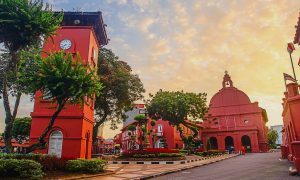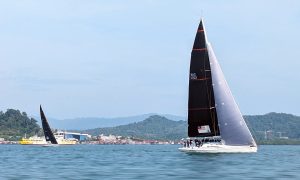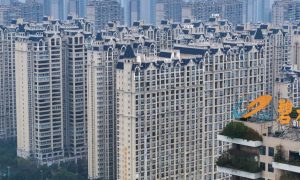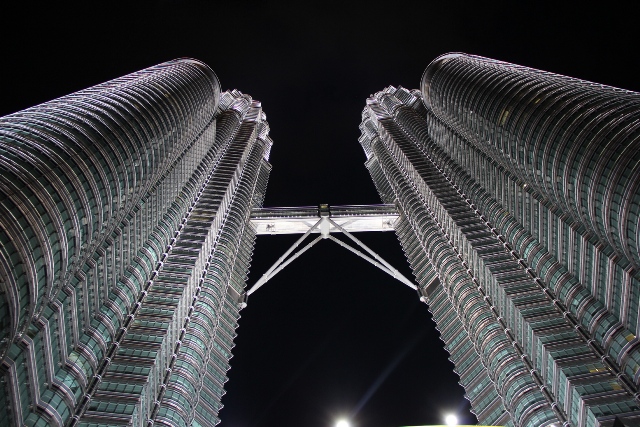
Malaysia made some significant strides in 2013. Editor Chad Merchant takes an in-depth look at Malaysia’s business climate, its suitability for expat living, the state of broadband service, and more.
In a year that saw Malaysia’s 13th General Election held, probably the most hotly contested in the nation’s history, 2013 was a year of progress in many ways. The calendar inches ever onward towards 2020, the year Malaysia has set for the achievement of many goals in its determination to become a developed, high-income nation. Now that we are in the new year, what progress has been made in 2013? Where does Malaysia rank, not only economically, but socially? And where do expats fit into the mix?
In 2013, we saw the wrap-up of the first phase of the Government Transformation Programme (GTP), which ended with 2012, and the commencement of the next, dubbed GTP 2.0, which will run through 2015 before the final phase is ushered in for 2016- 2020. The annual report for 2013 won’t be out for a while, but as the programme transitioned from phase one to phase two, it’s worth noting a few significant accomplishments and milestones, as well as some continuing challenges. For those who don’t know, the major categories of the GTP, called National Key Results Areas (NKRAs), are: addressing the rising cost of living, fighting corruption, reducing crime, improving student outcomes, raising standards of lowincome households, improving rural basic infrastructure, and improving urban public transport.
Crime and Corruption

Addressing and combatting corruption in Malaysia has been front and centre for much of 2013, and one of the goals of GTP 1.0 was to lift the country’s Corruption Perception Index ranking, which is put forth by Transparency International. Though the CPI ranking was indeed improved in 2013, there is still much to do, and increasing the positive awareness of these efforts is on the to-do list. Despite measurable improvements, the perception of both the level of corruption in Malaysia and the effectiveness of the fight against it remain problematic. Only 25% of the public think the GTP’s efforts against corruption are effective, and only 23% feel the level of corruption in Malaysia has improved in the last three years. Perhaps unlike other programmes, public perception – even if mistaken – is actually important in this case because corruption tends to proliferate when the public believes it’s simply part and parcel of doing business here. So although the GTP has seen real-world successes in their fight against graft, shifting the public’s awareness has been somewhat more challenging.
Crime is another area in which perception doesn’t always mesh with the numbers. Despite reported improvements in Malaysia’s crime statistics, a spate of high-profile crimes in 2012 and 2013, including some particularly disturbing recent events, have actually increased public concern about crime in general and driven a rising fear of being a victim of crime. In fact, a slim majority (52.8%) of Malaysians feel their country is not safe, and a slightly larger percentage (57.3%) personally fear they will be the victim of a crime. These numbers contradict Malaysia’s being named as the “most peaceful” ASEAN member country (Global Peace Index), as well as ranking as the fourth-safest country in the Asia-Pacific region. Additionally, Malaysia was named the safest country of 19 upper middle-income nations in the World Justice Project’s Rule of Law Index. So while snatch theft remains an ongoing risk in urban areas, and sensational crimes and killings are periodically splashed across the local papers’ front pages, the reported statistics would appear to show that the NKRA’s initiatives are having a positive impact, affirming that Malaysia is indeed a relatively safe and peaceful country. However, what may be the case for the country as a whole may not be so for its largest and most important city, Kuala Lumpur, where the population has exploded over the course of just one generation and which has seen a commensurate rise in crime with that growth, an inevitable side effect of a rapidly growing population.
Recently, some have even called into question the accuracy of reported crime statistics. According to a recent report in The New York Times, “Critics note that, after years of providing the public with data on murders, rapes, thefts, and other crimes, the government has changed the way it presents crime statistics, focusing on what it calls ‘index crimes’ rather than giving a detailed accounting. Tony Pua, an opposition member of Parliament, said he had ‘no confidence at all’ that the figures were accurate.”
Indeed, Teh Yik Koon, a local criminologist at the National Defence University of Malaysia, noted that it’s accepted that crime rates are higher than the official figures, believing one problem is a sense of hopelessness with results in underreporting. She says, “There are a lot of people not reporting crimes because they feel there’s nothing the police can do.”
In the waning months of 2013, it seems as though the government is increasingly acknowledging the fact that with a growing population comes a serious risk for an increase in crime, and in speeches given in October last year, have been enacting a new “get tough” approach to dealing with criminals. When prominent politician and BN Youth chairman Khairy Jamaluddin, also the son-in-law of former Prime Minister Abdullah Ahmad Badawi, saw his house burglarized last June, he noted that it served as a reminder (and probably a wake-up call) that crime was a problem in Malaysia. The home burglaries of close relatives of both the deputy Prime Minister and the Chief of Police, also last year, likely underscored the point, and moved crime to the top of the political agenda.
For the average expat in Malaysia, the risk of being a victim of violent crime remains low, but it’s still reassuring to see the government taking a stronger stance in acknowledging that improvements can be made. Part of the GTP’s efforts include increased police presence, security cameras in high-risk areas, and even deploying strategically placed barriers along roads and sidewalks to deter motorbike-mounted snatch thieves. It’s an unfortunate reality that wherever people are, especially in large numbers, crime will follow. Indeed, fighting crime and dealing with its root causes remain challenging for any country. That Malaysia has made reducing crime such an important element of its GTP is encouraging, and it is of course hoped that positive results will result.
Rails of Progress and a Second Bridge
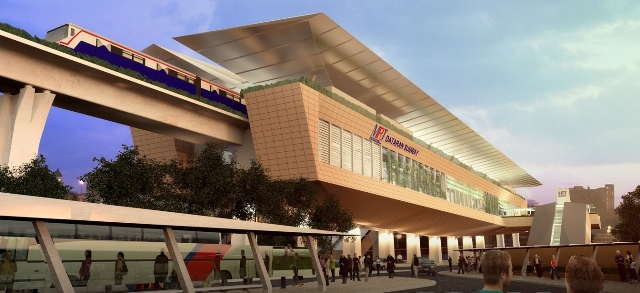
A sister programme to the GTP is Malaysia’s Economic Transformation Programme (ETP). Many concurrent efforts are underway to propel Malaysia into the company of high-income nations by 2020. One of the two flagship projects, falling under the ETP’s Greater KL/Klang Valley National Key Economic Area framework, a long-overdue MRT line – which will run over 50km from Sungai Buloh to Kajang and bring public transportation to 1.2 million underserved residents – moved off the drawing board and into construction.
This new line will run through some of Greater KL’s most congested areas, such as Kota Damansara, PJ Section 16, and Cheras. The effort being expended on this project is nothing short of amazing. We have talked with those involved (and among ourselves) and are unanimously impressed at both the scale and speed of construction on this massive project. All around the city, a sea of orange and white barricades and cones serve as a testament to the size of this undertaking. Great concrete supports are rising and construction continues day and night. When completed in 2016, this line will link 31 stations in some of the most densely populated areas in Greater KL. Five stations in the heart of the city will be underground, and you can see the excavation work underway from several locations in Bukit Bintang and nearby.
In addition to the MRT project in Greater KL, the feasibility study for a proposed high-speed rail linking KL and Singapore was launched in the first half of 2013, taking into account the alignment of the railway and location of stations, the economic impact of the project for both Malaysia and Singapore, management strategies, and technical specifications.
Meanwhile, up north in Penang, construction on the much-anticipated second bridge to the mainland has been completed at last, built over the last five years at a cost of RM4.5 billion, and recently underwent testing to determine its load capacity. The snakelike 24-km bridge connects Batu Kawan on the mainland with Batu Maung, adjacent to Bayan Lepas International Airport on the southeast coast of Penang Island. With 16.9 km of its length over the sea, the rather unimaginatively named Penang Second Bridge is now the longest in Southeast Asia. (For comparison, the original Penang Bridge, which opened in 1985, has a total length of 13.5 km, of which 8.4 km is over water.)
Business and Expat Living
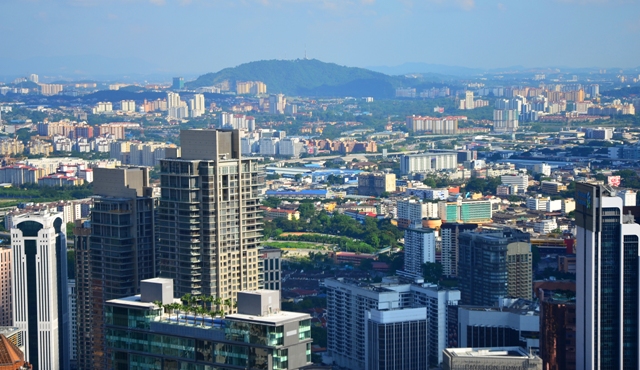
Making the country more attractive and conducive to business is, naturally, a chief initiative of the ETP, and the efforts which have been undertaken are starting to bear fruit. In a 2013 report by the World Bank, which serves as a beacon for 2014, Malaysia was ranked as the sixth-friendliest country in the world in which to do business, behind Singapore, Hong Kong, New Zealand, the United States, and Denmark. For Malaysia to have been ranked so highly was doubly rewarding, as sixth place put Malaysia ahead of well-developed countries such as the United Kingdom, Australia, and South Korea. Malaysia was particularly noted for its recent business-friendly reforms, which doubtlessly helped lift its ranking. Efforts such as reducing the costs for company registration might seem minor, but when taken in consideration with other new measures like streamlining tax regulations, onestop shopping for obtaining permits and licences, applying for construction permits more easily, and even setting up utilities, it all worked towards making Malaysia a more business-friendly place.
The report also drilled down to more specific sub-rankings, and in some of these, Malaysia performed admirably. In fact, Malaysia tied with the UK for first place in the “Getting Credit” category, ranked fourth in “Protecting Investors,” and fifth in “Trading Across Borders.” In another coup, Malaysia found itself scoring quite well in parts of the recently released 2013 HSBC Expat Explorer Survey Results. The 2013 survey saw over 7,000 expats worldwide answering questions relating to their finances, quality of life, and their experiences with raising children abroad. The quality of life questions were collectively grouped under the main category “Expat Experience” and here, Malaysia did reasonably well. Expats living in the top 12 countries are more likely than average to report enjoying an improvement in their quality of life since relocating from their home country. Malaysia ranked fifth in this category and 72% of expats in Malaysia report that their overall quality of life has improved since moving to Malaysia. Additionally, 69% of expats in Malaysia responded that they have a better standard of accommodation than in their home country, compared with a global average of 39%. Finally, though only 25% of expats worldwide having a more active social life since moving abroad, nearly 40% of Malaysia based expats say that is indeed the case for them.
Malaysia’s ability to offer not only a good business environment but also a place that expats like to call home surely plays a role in the success of InvestKL, an agency tasked with bringing large multinational companies to Greater KL. In 2013, particular progress was made towards wooing UK-based multinationals to set up their ASEAN hubs in KL. Of a recent official visit to London, InvestKL CEO Zainal Amanshah said, “The numerous expressions of interest that InvestKL has already received from British companies to locate their ASEAN headquarters here means that we have made very large strides.” He added, “They were highly impressed with KL’s world-class infrastructure, strategic location, and strong regional connectivity to neighbouring energy and technology markets in Southeast Asia, as well as its central location to the world’s secondand third-largest economies of China and India.” Also in 2013, on the other side of the Atlantic, the InvestKL team joined with Prime Minister Najib for a trip to New York City to meet with a select group of leaders from US-based MNCs. Mr. Najib made a point of praising InvestKL’s efforts to promote Greater Kuala Lumpur, encouraging American and other global business leaders to set up their regional business, innovation, and talent hubs in the Malaysian capital. Surely, InvestKL’s efforts are a key part of Greater KL’s rise to significantly increased regional prominence, and this trend is expected to continue in 2014.
Another group which enjoyed a successful 2013 is TalentCorp. We’ve written about this agency many times before in The Expat, as they are the authority behind the hugely popular Residence Pass-Talent visa that qualifying expats and their spouses love. This year, TalentCorp launched their Expatriate Services Desk (ESD) which serves both companies and expats as a single point of contact. The ESD, located at the Immigration Department in Putrajaya, functions as a premium one-stop service centre for expats and can be visited for virtually all of TalentCorp’s offerings, from a temporary employment pass for an expat-employed maid, to a Permanent Resident pass for qualified expats.
Getting Up to Speed

Certainly one measure of a country’s modernisation and quality of life is its telecommunications infrastructure. Malaysia has made impressive strides here, roughly tripling its average internet connection speeds in just the last three years. High-speed mobile communications protocols such as Enhanced 3G HSDPA and 4G LTE are increasingly available, and in fact, Malaysia is one of only three ASEAN countries, along with Singapore and the Philippines, offering the speedy LTE protocol in 2013. (That’s “Long-Term Evolution” for the less techno-minded among us.) Fibre optic connectivity offering high-speed broadband (up to 20 Mbps) is now widely available in urban areas, and Malaysians are getting connected at much higher speeds than in 2010. As of mid- 2013, Malaysia’s nationwide average internet connection speed came in at 3.1 Mbps, only slightly below the global average (3.3 Mbps). Additionally, the adoption rate of broadband in Malaysia, defined by average connection speeds faster than 4 Mbps, hit 26.7% in 2013, roughly half of the worldwide average of 50%. In ASEAN, Malaysia is above the average connection speed of 2.3 Mbps. Singapore leads the pack at 6.5 Mbps, with Thailand taking second place at 4.5 Mbps, and Malaysia’s 3.1 Mbps bringing it in third place.
For worldwide comparison, the world leader in average connection speed continues to be South Korea, with a blistering 13.3 Mbps. South Korea also has the highest adoption rate of high broadband (faster than 10 Mbps), at 45.5%. Japan trails only slightly in average speed, at 12 Mbps, and the USA and UK are nearly tied, at 8.7 Mbps and 8.4 Mbps, respectively.
SEE ALSO: How to Pick a Broadband Connection in Malaysia
Looking Forward
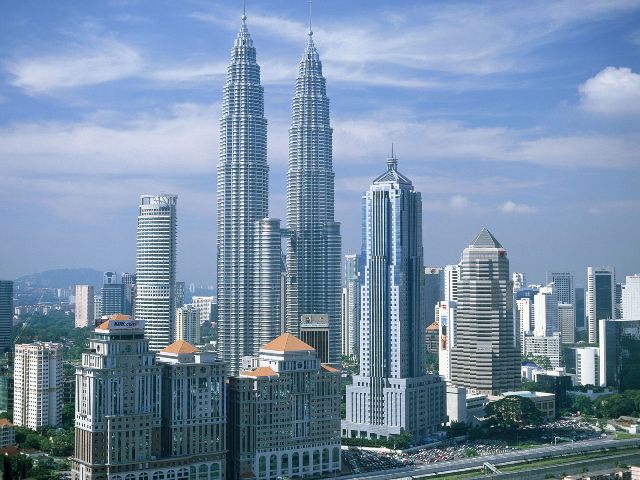
With six years left until the calendar rolls over to 2020, Malaysia finds itself in the home stretch of its ambitions plans to become a fully developed country and a high-income economy. Other goals, such as making KL one of the world’s most liveable cities and eradicating corruption, are still ongoing, and while its recognised that such worthwhile objectives may not adhere to stated deadlines, the continuing efforts to achieve them are, in themselves, laudable. The financial outlook for Malaysia in 2014 is uncertain, the possibility of a broad goods and services tax being implemented seems stronger, as does the additional rollback of government subsidies, and talk continues about a growing property bubble, particularly in Penang. The government has taken steps to lessen the likelihood of a “burst,” however, the most notable of them the changing of the capital gains tax rules with regard to property profits to discourage speculative buying and “flipping.” The federal government has also called for raising the minimum property purchase price for foreign buyers to RM1 million, though it’s at the discretion of each individual state to enact this.
For working expats and retired expats, however, Malaysia remains an appealing choice in Southeast Asia, and among the best “home away from home” destinations in the world. For expats, the combination of year-round warmth, widespread English, great infrastructure, a stable and forwardlooking government, excellent international schools, a vibrant capital city, affordable cost of living, and plenty of leisure options on both land and sea, all packaged in a relatively safe country that’s virtually free from natural calamities makes Malaysia a continued winning choice. And as longtime residents already know, of course, all the excellent food available here doesn’t hurt, either!
Sources: “Doing Business Report 2014” – World Bank; GTP Annual Report 2012; ETP Annual Report 2012; The New York Times, 18 October 2013; HSBC Expat Explorer Survey 2013; Akamai “State of the Internet,” Q2 2013; InvestKL; TalentCorp.
Homepage highlight photo credit: Debbie Armstrong
Source: The Expat December 2013
Read more:
- 10 Reasons to Move to Malaysia
- The People Who Make Malaysia a Multicultural Haven
- An Expat’s Perception on Malaysia: “Malaysia seemed to be a nice place to live, and it is!”
What are your thoughts on this article? Let us know by commenting below.No registration needed.
"ExpatGo welcomes and encourages comments, input, and divergent opinions. However, we kindly request that you use suitable language in your comments, and refrain from any sort of personal attack, hate speech, or disparaging rhetoric. Comments not in line with this are subject to removal from the site. "




